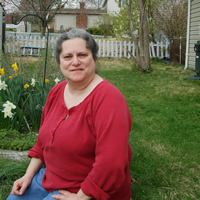Blessings Darlings!
We old folks, who remember feminist activism in the '70's, remember the mantra "the personal is political" - that is, a lot of what you personally experience is a result of what the Powers That Be allow/encourage. Your experiences reflect systemic problems - they are not JUST 'your problems.' The phrase is just as true today, 40+ years later, as it was then.
To straighten out some of the big things in your life, you end up working against rather than with, 'the system.' And even if you kludge some sort of solution, it only helps you - it doesn't solve the systemic problem.
Let me give you an example. I live in West Virginia. It's an incredibly beautiful state, very rural, lots of mountains. Getting almost anywhere requires a car ... ESPECIALLY if you're poor. That's because housing in cities and towns where you can walk to a job (or - gasp - might have buses) is considerably more expensive that living out in a rural area. Oh, sure, it might be physically possible to walk to a job, but it will be 3 - 15 miles away. And you'll be walking 2 of those miles on unlit roads with relatively fast moving traffic ... and either going to work or coming home it will be dark out. And the road won't be very plowed in winter, so you'd be walking IN the road after dark, no streetlights, icy conditions, and traffic. It . is . not . safe . to . walk . Even if it's summer and 'just' dark.
A coworker of mine lives that rural, and 15 miles from work, AND can't afford a car. He lives with two other adults who work and share a car getting THEM to their jobs, but they work on shifts that conflict with his. Before, several other coworkers were in positions to give him rides to and from work AND lived in his direction. Due to staff turnover, that's not possible now (and child care issues for the poor are part of THAT problem, as is the lack of local services for children with disabilities). So we've kludged together a solution that involves a couple of other coworkers who do NOT live in his direction providing rides.
One of them is driving 180 to 240 extra miles a week because of this. Obviously, that coworker is putting a lot of time and car wear into this (the person lives only two miles from our workplace, and in the opposite direction.) Another coworkers drives when possible, but doesn't often work the same shift.
We're getting Rural Living No Car coworker to and from work. This 'solution' works for that one individual. The cost is ... kinda high to other individuals - it's fortunate that the person driving him the most loves to drive. AND the 'solution' doesn't at all address the underlying problems - rural transportation problems, low pay in the restaurant industry, and housing costs. We, his coworkers, can't fix those problems by ourselves. Those are the systemic problems, that affect way more people than just him.
Heck, as I recall (and I could be wrong), the rural transportation issue is the #1 cause of rural poverty. It's systemic. In a very real way - the system is set up so that the rural poor will always be the rural poor.
These are some of the reasons I'm politically active. We need system solutions, not individual solutions.
Frondly, Fern
Subscribe to:
Post Comments (Atom)

No comments:
Post a Comment